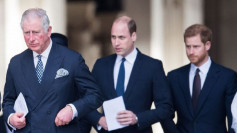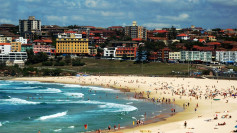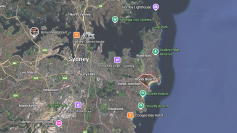North Korean leader Kim Jong Un has renewed his call for an aggressive expansion of his country's nuclear arsenal, citing what he describes as mounting threats from the United States and its allies.
During a conference with military officials in Pyongyang, Kim condemned U.S.-led military actions and accused Washington of escalating tensions on the Korean Peninsula. He also criticized the United States' support of Ukraine in its ongoing conflict with Russia, labeling it a tactic to expand U.S. influence and use Ukraine as "shock troops" against Moscow, according to the state-run Korean Central News Agency (KCNA).
Kim's remarks, delivered last Friday and reported by state media on Monday, mark his first direct criticism of the United States since Donald Trump's election win. Kim, who has previously met with Trump in a series of historic but ultimately stalled summits, refrained from addressing Trump directly in his recent speech. Analysts have speculated that Trump's return to power could revive the diplomacy that characterized their past interactions, but regional and global dynamics have shifted significantly since their last meeting in 2019.
The North Korean leader framed his nuclear expansion as a necessary deterrent against what he called an emerging "Asian NATO," referring to increased military cooperation among the U.S., South Korea, and Japan. "The threats from the United States and its allies have brought tension to the worst phase in history," Kim stated. He described the Korean Peninsula as "the world's biggest hotspot," and urged his military commanders to prepare for an "actual war."
Pyongyang's rhetoric is accompanied by new military actions, including the dispatch of thousands of North Korean troops to Russia to support its war efforts in Ukraine. While Kim has prioritized his country's relationship with Russia, framing it as a component of a "new Cold War," the presence of North Korean troops in Russian-occupied regions, such as Kursk, near the Ukraine border, has drawn international condemnation. Washington, Seoul, and Kyiv have confirmed that some North Korean forces have even seen combat in Ukraine, further deepening concerns about Pyongyang's alignment with Moscow.
Kim's speech also highlighted plans to bolster North Korea's military capabilities through mass production of suicide drones and other modern weaponry. His push for a stronger, war-ready military reflects what North Korean state media described as an effort to achieve "substantial and fundamental improvement" in the country's combat preparedness. The conference included a workshop for battalion commanders focused on enhancing their fighting efficiency and modernizing their war strategies.
The growing ties between North Korea and Russia have not gone unnoticed by the international community. Last week, U.S. President Joe Biden, South Korean President Yoon Suk Yeol, and Japanese Prime Minister Shigeru Ishiba issued a joint condemnation of the two nations' expanding military cooperation during a summit on the sidelines of the Asia-Pacific Economic Cooperation (APEC) meeting in Peru. In response to Russia's deployment of North Korean troops, Biden's administration has reportedly authorized Ukraine to use U.S.-provided long-range weapons for strikes within Russian territory, marking a significant policy shift.
North Korea's military maneuvers have also included psychological tactics aimed at destabilizing South Korea. South Korea's Joint Chiefs of Staff reported that North Korea flew thousands of balloons carrying trash into South Korean territory on Monday, warning Pyongyang "not to test our military's patience any further." Since May, the North has launched about 7,000 balloons, causing property damage and raising security concerns at key sites in Seoul.
The situation underscores Kim's strategy of linking his nuclear ambitions with broader geopolitical tensions. Experts such as Hwang Ildo, a professor at South Korea's National Diplomatic Academy, note that North Korea's nuclear and missile program has advanced significantly since Trump's first term, complicating any potential diplomatic re-engagement. "While the North Korean nuclear problem was relatively independent during Trump's first term, it is now connected with broader challenges created by Russia's war on Ukraine," Hwang wrote in a recent study.
This article includes reporting from AP and Reuters.






